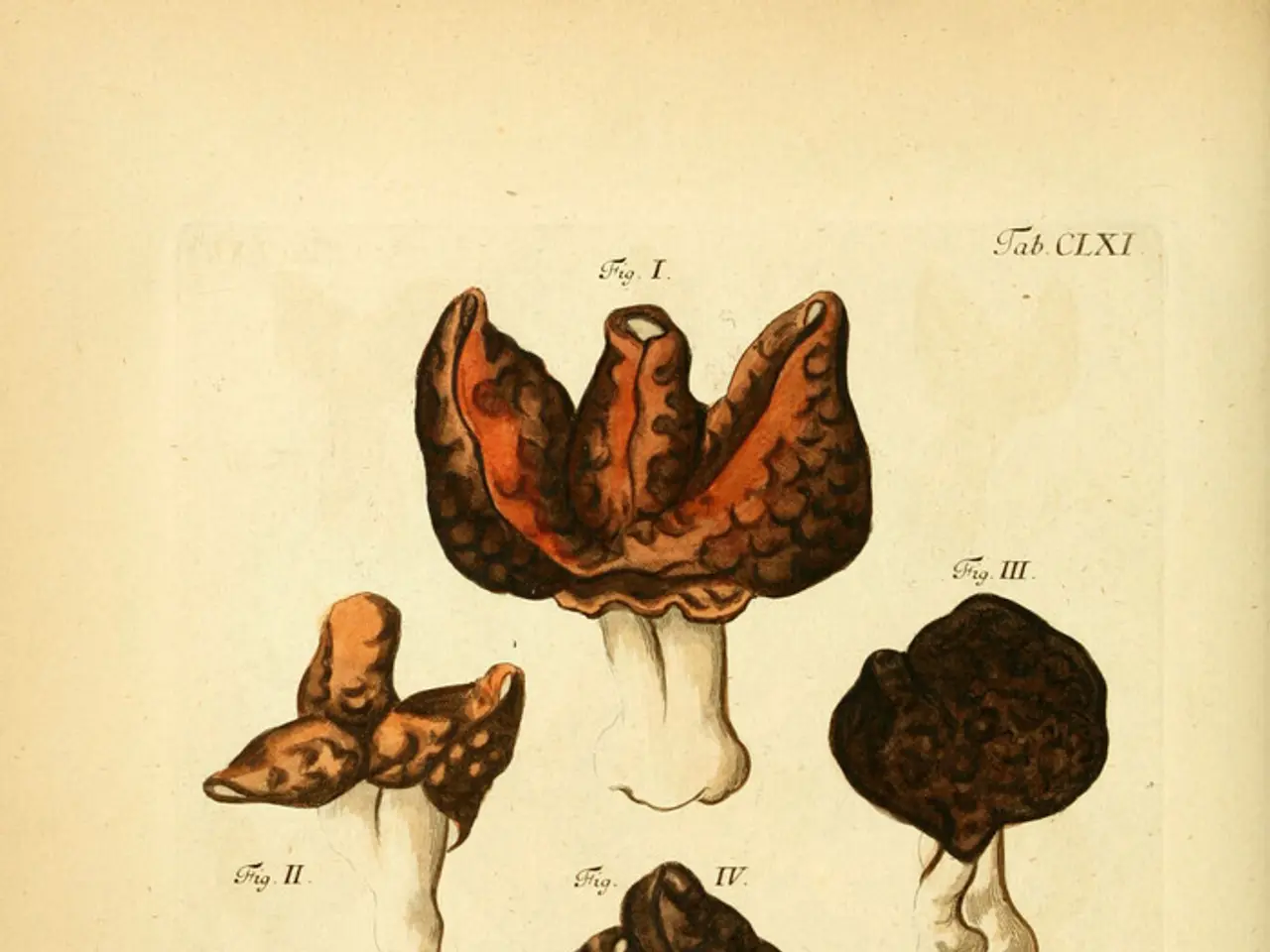"$Ministry of Health$ reveals guidelines for safe mushroom consumption to avoid poisoning"
According to the Ministry of Health, it is essential to follow certain guidelines when foraging and consuming mushrooms to avoid poisoning. Here are the key practices to remember:
- Correct Identification: Only pick mushrooms that you are certain are safe based on reliable identification. Many toxic mushrooms resemble edible ones, so it's crucial to use specialized field guides or consult with experts such as mycologists before consuming wild mushrooms.
- Avoid Suspicious Mushrooms: Do not pick mushrooms that look unusual or have any doubtful traits, as even attractive mushrooms can be toxic.
- Avoid Polluted Areas: Mushrooms absorb harmful substances like heavy metals and chemicals from soil, so avoid foraging near industrial areas, roads, or places likely contaminated.
- Disregard Myths: Traditional advice (e.g., that mushrooms that change color when cooked are poisonous) is unreliable. Proper identification is the only safe method.
- Proper Handling and Storage: Store harvested mushrooms in breathable containers (such as baskets) to prevent moisture buildup, which can promote microbial growth.
- Hygiene when Handling: If removing mushrooms from your property, wash hands thoroughly afterward, especially before touching face or eyes to avoid accidental ingestion or irritation.
- Seek Expert Guidance: Participating in mushroom identification courses or joining amateur mycology clubs can help ensure safer foraging practices. The safest mushrooms are often those purchased at stores where identification and safety are controlled.
- Immediate Action if Poisoning is Suspected: Contact medical centers or emergency services promptly if mushroom poisoning is suspected.
In addition to these guidelines, all collected mushrooms must be boiled before consumption, and sorting and cooking mushrooms should only be done by adults. It is also recommended to avoid buying canned or dried mushrooms from unknown sources, especially if they are hermetically sealed.
Moreover, mushrooms should not be part of the diet of people with liver disease or metabolism disorders, small children, or those with mushroom allergies. The broth from boiling mushrooms should be discarded, as mushrooms can accumulate toxic substances.
When collecting mushrooms, it is advisable to only collect mushrooms that are well-known to avoid poisonings. If collecting gilled mushrooms, choose only those with stems to avoid confusion with poisonous species. Damaged or overripe mushrooms should not be bought at markets to prevent unpleasant consequences.
Reference books are available where information about edible and poisonous mushrooms can be found. It is essential to adhere to these rules to avoid mushroom poisonings. After collection, mushrooms should be immediately sorted and processed to prevent them from becoming dangerous. Prepare only young mushrooms and process each type separately - salt, dry, or marinate them. Conditionally edible mushrooms must be boiled at least twice for 50 minutes each time, rinsing them under running water each time.
In summary, the Ministry of Health emphasizes reliable identification, avoiding contaminated areas, proper handling, and consulting experts as key pillars to prevent mushroom poisoning during foraging and consumption.
Science plays a crucial role in understanding the health-and-wellness benefits of certain mushrooms, particularly in the field of nutrition and healthy-diets. However, it's equally important to follow strict guidelines while foraging and consuming mushrooms to ensure their safety, such as correct identification, avoiding suspicious mushrooms, proper handling, and storage, and seeking expert guidance to prevent potential poisonings.




